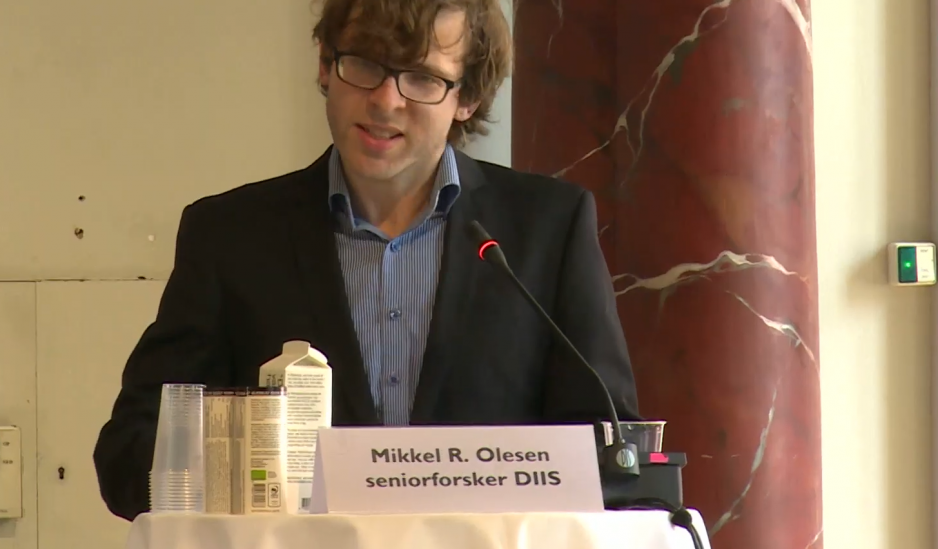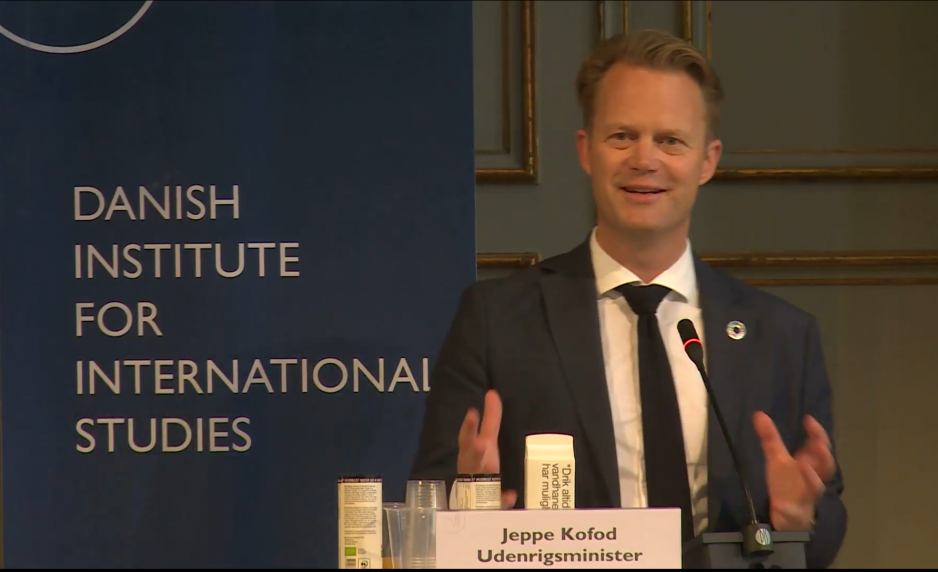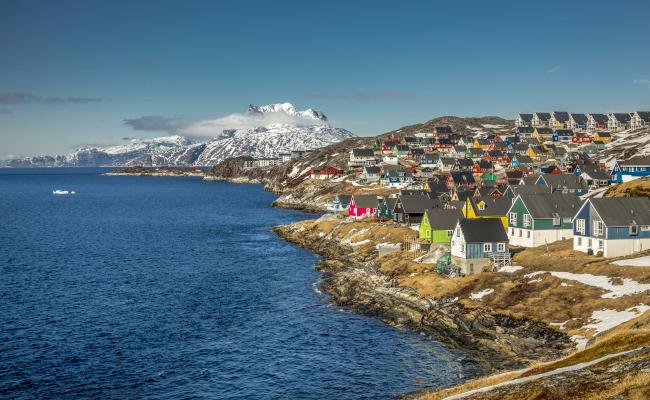“U.S. Security Policy Change in the Arctic Places Denmark under Pressure”, Says Foreign Policy Researcher

Mikkel R. Olesen at the Danish Institutefor International Studies says Denmark must handle the dynamic between security policy interests in relation to China, Russia and the USA as well as the respective parts of the Realm’s economic interests. (Photo: Screen shot)
“Denmark, Greenland and the Faroe Islands must appear as one unified actor in order to avoid being played against each other by the superpowers”, says Mikkel R. Olesen, researcher on foreign policy and the Arctic.
At a conference this week about Denmark’s foreign policy challenges, Senior Researcher Mikkel R. Olesen at the Danish Institute for International Studies pointed out increased Russian, Chinese and American engagement in the Arctic as a clear development trend in the region.
Olesen nevertheless argued that it is the American reaction to Russian and Chinese activity in the Arctic that has the largest direct impact on Denmark and the biggest shift felt from the Danish side.
Where the Obama administration spent time on the Arctic in relation to the climate and focused less on security politics, the region has in recent years been seen as an arena for superpower rivalry.
In the US Department of Defense’s new Arctic strategy from 2019, China and Russia are considered strategic competitors in the region.
Interests of the parts of the Danish Realm
The foreign policy researcher explained that the American security policy shift in the Arctic places Denmark most directly under pressure as it has led to greater American expectations to Danish problem-solving in the Arctic.
“The Americans are for instance putting pressure on the Danish Realm in order to make it prioritize surveillance and search in the air territories above and around Greenland and the Faroe Islands.”
Inside the Danish Realm, which consists of Denmark, Greenland and the Faore Islands, there are several conflicting interests.
“Denmark has an additional challenge other small states do not have; challenges in having to both handle what goes on in the world and also find internal agreement within the Realm”, he pointed out.
The challenges for the Realm
Olesen says that on an overall level, it is about how one manages the dynamics between Denmark’s security policy interests in relation to China, Russia and the USA and also the individual parts of the Realm’s economic interests.
He adds that both Greenland and the Faroe Islands have a particular interest in attracting investments in infrastructure as well as market opportunities for their fish, and that both China and Russia are important in this context.
The Senior Researcher points out that Denmark cannot expect Greenland and the Faroe Islands to accept complications of not interacting with someone based on security policy regards unless Denmark informs them well enough and include them in the process early on.
“Both Denmark and the Realm face challenges here. And there are in particular two things that are important. One is the importance of Greenland and the Faroe Islands feeling properly included in questions about the Arctic relevant to them. The second is their being included early and sufficiently in the decision-making process.”
“The Realm’s ability to manage external challenges is in this relation directly linked with its ability to appear as one unified actor. If not, they risk being played out against each other by the superpowers”, Olesen emphasizes.

Danish Foreign Minister Jeppe Kofod mentioned a.o. superpower rivalry in the Arctic and the Danish Realm when he spoke about Denmark’s foreign policy challenges this week. (Photo: Screen shot)
“Close dialogue within the Realm is crucial”
“Russia is rearming militarily; China sees a strategic interest in being present. That also leads the USA to turn its eyes to the Arctic.”
At the seminar, the Artic, superpower politics and the Realm were among the main themes of Danish Foreign Minister Jeppe Kofod.
“With more actors operating in the region, challenges arise and there is a risk of increased tensions”, Kofod said.
He pointed out that in this context, it is important for Denmark to secure a viable and strengthened partnership within the Realm, based on trust and mutual respect.
“To me, our having an on-going and close dialogue about foreign and security policy in the entire Realm is of vital importance. I would like to work for a modern and more generous Realm.”
The Foreign Minister stressed that Denmark, the Faroe Islands and Greenland will work together on a new Arctic strategy that is to be ready by early 2021.
Jeppe Kofod is also to supply a new foreign and security policy strategy for Denmark. At the conference, he spoke about the global foreign policy changes and about how Denmark’s foreign policy is to address these. European politics, the UN and the Sustainable Development Goals were also discussed.
Also read
This article was originally published in Norwegian and has been translated by HNN's Elisabeth Bergquist.




